Catholic Spirituality Collection (12 vols.)
Digital Logos Edition
Overview
The Catholic Spirituality Collection (12 vols.) combines the greatest works in Christian mystical theology providing you with a guided tour through the inner sanctum of the soul. The great Christian ascetics are often referred to as the “scientists of prayer” because of their innate ability to articulate the contemplative life. Each of these authors has left an unfading mark on the tradition of Christian worship—many were even formative in the spiritual lives of the great Protestant Reformers.
Explore the nature of holy living and the rigors of the ascetic life with St. Benedict, St. Francis de Sales, and St. Bernard. Relate to the painful process of spiritual growth expressed by the Carmelite mystics—St. John of the Cross, Teresa of Ávila, and St. Thérèse of Lisieux. Learn to walk closely with Jesus Christ from the writings of St. Francis, St. Ignatius, and Thomas à Kempis.
The Catholic Spirituality Collection (12 Vols.) truly is the collection for everyone. The Catholic mystical theologians speak to every walk of life, whether you are a student of the monastic traditions, a spiritual mentor or just want to better understand the spiritual disciplines. The Logos edition of these titles combines their depth of spiritual insight with your entire Logos library. Search your other resources for more about the spiritualists, or quickly locate passages from their writings cited in other books from your library. Even Scripture passages appear by simply dragging your mouse over the reference.
- Explore the spiritual life with the greatest Christian mystics
- Learn the beginning of Western monasticism with St. Benedict
- Navigate spiritual depression with St. John of the Cross
- Logos edition provides integrated access to Scripture references
- Title: Catholic Spirituality (12 Vols.)
- Volumes: 12
- Pages: 2,636
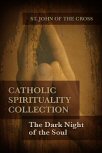
The Dark Night of the Soul
- Author: St. John of the Cross
- Translator: Gabriela Cunninghame Graham
- Publisher: John M. Watkins
- Publication Date: 1905
- Pages: 265
With this poem and commentary, the pre-eminent Catholic spiritualist, St. John of the Cross, maps his long and often dark spiritual journey. The contemplations of this Carmelite monk have encouraged generations of Christians to pursue Jesus Christ regardless of the immediate spiritual experience.
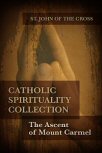
The Ascent of Mount Carmel
- Author: St. John of the Cross
- Translator: David Lewis
- Publisher: Thomas Baker
- Publication Date: 1906
- Pages: 388
St. John of the Cross portrays Mount Carmel as the mystical height of Christian spirituality and union with God. In Ascent of Mount Carmel, St. John of the Cross dissects each phase of Christian spiritual growth—both triumphs and defeats—in order to produce a manual for Christian asceticism. The spiritual considerations of St. John of the Cross have encouraged the spiritual growth of Christians for over four centuries—including the academic and spiritual development of Pope John Paul II.
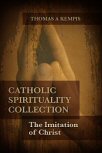
The Imitation of Christ
- Author: Thomas à Kempis
- Translators: Aloysius Croft and Harold Bolton
- Publisher: Logos Research Systems
- Publication Date: 1996
- Pages: 265
What does it mean to be a Christian? According to Thomas à Kempis, the Christian must completely imitate the life and example of Jesus Christ. In this classic treasure of Christian instruction, Thomas à Kempis challenges the believer to look intently upon the life of Christ and live in the pattern He established. This spiritual manual begins with the proper outward expressions of faith, moving quickly to the instruction of the reader's spiritual formation. All the while insisting that true imitation of Christ can only occur when the heart and mind are united to Christ.
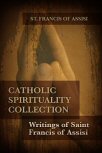
Writings of Saint Francis of Assisi
- Author: St. Francis Assisi
- Translator: Fr. Paschal Robinson
- Publisher: Dolphin
- Publication Date: 1906
- Pages: 208
Saint Francis of Assisi has remained a beloved saint among all the great Christian traditions. His example of simple devotion and humble service has provided a timeless example of genuine Christian faith. Through his poverty he proved the richness of the Gospel and embodied the reality of Jesus Christ among men. This collection of writings shares some of Saint Francis’ classic contemplations on the devout life, the disciplines of asceticism and glories of God’s creation.
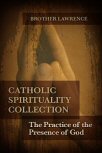
The Practice of the Presence of God
- Author: Brother Lawrence
- Publisher: H. R. Allenson
- Publication Date: 1906
- Pages: 60
This classic series of letters penned by the seventeenth century Carmelite monk, Brother Lawrence, describes the challenge of daily walking in the presence of God. Brother Lawrence shares his own spiritual struggles with the recipient and encourages the reader with practical ways to draw closer to God and remain in his presence regardless of surrounding distractions or the busyness of life. The Practice of the Presence of God is a challenge to daily walk in communion with God, step by step and moment by moment.
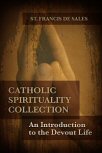
The Introduction to the Devout Life
- Author: St. Francis de Sales
- Publisher: M. H. Gill and Son
- Publication Date: 1885
- Pages: 286
St. Francis began Introduction to the Devout Life as a correspondence with a married women looking to increase her spiritual devotion in the midst of a busy life; the result was a layman’s guide to the spiritual life. Each chapter is a short meditation designed to challenge and refocus the believer towards an authentic Christian life. At nearly 120 chapters, Introduction to the Devout Life is the perfect companion for jump starting a devotional routine or continuing a life-long journey of spiritual maturity.
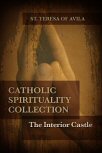
The Interior Castle
- Author: St. Teresa of Ávila
- Translator: John Dalton
- Publisher: James Duffy
- Publication Date: 1866
- Pages: 272
A true masterpiece of spiritual reflection, Interior Castle contains the autobiographical journey of St. Teresa of Ávila. She describes the spiritual life as a castle with many levels. Each individual begins in the lowest level of the castle steeped in the awareness of sin and a passion for spiritual maturity. As her metaphor unfolds, St. Teresa devotes a considerable amount of time to the contemplative life and the soul’s union with God. St. Teresa was plagued by constant illness and pain, making her spiritual meditations a vivid and tangible expression of devotion to Jesus Christ.
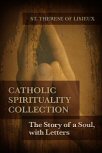
The Story of a Soul, with Letters
- Author: Thérèse of Lisieux
- Editor: T. N. Taylor
- Publisher: Burns & Oates
- Publication Date: 1912
- Pages: 428
Story of a Soul is the spiritual autobiography of St. Thèrése of Liseaux. Beginning with her childhood longing for the ascetic life, St. Thèrése documents the life circumstances that led her to the Carmelite tradition and her subsequent spiritual journey. Much like St. John of the Cross, St. Thèrése describes a period of prolonged darkness over her soul. Her story is one of victory and nearness to Jesus, but her spiritual journey through life was far from easy. St. Thèrése died at the early age of twenty-four and was canonized in 1914, only seventeen years after her death. Be encouraged by the story of this young saint and learn from her example of simple devotion to Jesus.
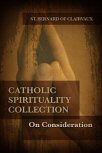
Saint Bernard on Consideration
- Author: St. Bernard of Clairvaux
- Translator: George Lewis
- Publisher: Clarendon
- Publication Date: 1908
- Pages: 168
St. Bernard’s On Consideration reminds the pastor that love for God and a rich life of prayer must precede any action in the temporal sphere—regardless of the distractions and temptations of his office. Originally written for his friend and former disciple, Pope Eugenius III, On Consideration remains a favorite of popes even to this day and was highly praised by John Calvin. St. Bernard’s meditations are an enduring source of inspiration for all pastors.

Saint Bernard on the Love of God
- Author: St. Bernard of Clairvaux
- Translators: Marianne Caroline and Coventry Patmore
- Publisher: Burns & Oates
- Publication Date: 1884
- Pages: 222
On the Love of God addresses the reasons we ought to love God and the manner and different degrees of this love. St. Bernard teaches that God Himself is the motive of our love for him and that nothing is more reasonable and nothing more profitable than loving him. He then lays out the degrees whereby the soul proceeds from loving God for its own sake to loving the self only for God.
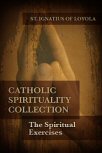
The Spiritual Exercises
- Author: St. Ignatius of Loyola
- Translator: Elder Mullan
- Publisher: P. J. Kenedy
- Publication Date: 1914
- Pages: 205
The Spiritual Exercises of Ignatius of Loyola is a short spiritual journey designed to direct the participant towards the discernment of God’s will and a renewed vigor to faithfully pursue him. St. Ignatius originally intended the manual to be used over the course of one month and under the supervision of a spiritual advisor. His meditations demand contemplation and the willingness to confront sin and dedicate oneself to a spiritual life.
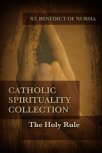
The Holy Rule
- Author: St. Benedict of Nursia
- Translator: A Priest of Mount Melleray
- Publisher: Thomas Richardson and Son
- Publication Date: 1865
- Pages: 134
St. Benedict is hailed as the father of the monastic tradition in Western Christianity. His Rule has remained the foundation and structure of Western monasticism for nearly fifteen centuries. Benedict’s Rule contains seventy-three guidelines for living in an ascetic community. The themes cover include: the monk’s involvement with the outside world, the appropriate treatment of guests, and the nature of authority with the community.
Reviews
5 ratings
Adam
9/8/2024
Rev. Dr. Dustin T Parker
4/21/2018
Michael T. Fox
1/20/2017

Larry Liddiard
9/26/2015
Mike Leggett
10/31/2013